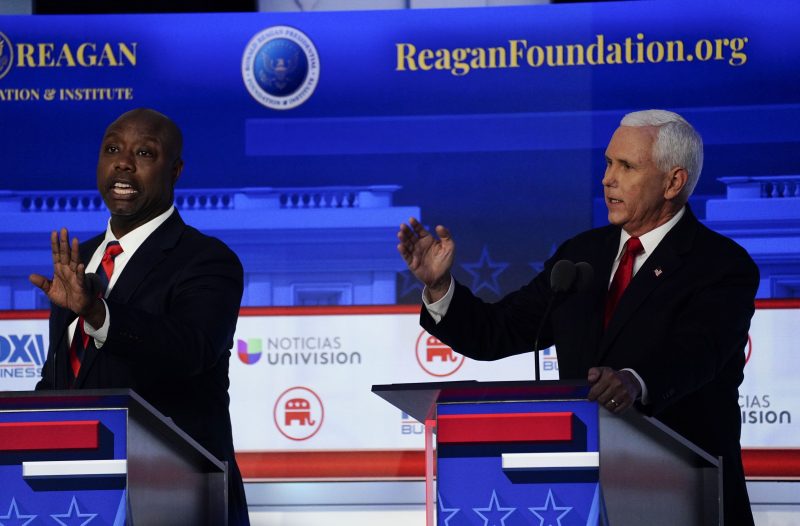In a surprising announcement that has sent shockwaves through the political landscape, former Vice President Mike Pence has declared that he will not be endorsing former President Donald Trump for the 2024 presidential election. Pence, who served as Trump’s loyal vice president throughout his tumultuous tenure in office, revealed his decision in a statement released to the press on Thursday.
The rift between Pence and Trump had been simmering for some time, stemming from the January 6th Capitol insurrection when a violent mob of Trump supporters stormed the Capitol building in an attempt to overturn the election results. During the chaos, Trump had called on Pence to challenge the certification of the electoral college results, which Pence, in his role as vice president, did not have the authority to do. This act of defiance reportedly strained the relationship between the two men, leading to a growing distance between them.
Pence’s decision not to endorse Trump for the 2024 election comes as a significant blow to the former president’s hopes for a political comeback. Trump, who has been teasing a potential run for the presidency in 2024, has been eager to secure the support of key figures within the Republican Party, including Pence. However, Pence’s refusal to endorse him signals a deepening divide within the GOP and raises questions about the future of the party’s unity moving forward.
Political analysts are already speculating about the potential implications of Pence’s announcement on the upcoming election cycle. Some see Pence’s decision as a bold move to distance himself from the controversial legacy of the Trump presidency and position himself as a more moderate voice within the party. Others view it as a strategic calculation aimed at shoring up support among anti-Trump factions within the GOP.
Regardless of the motivations behind Pence’s decision, one thing is clear: it has upended the political landscape and set the stage for a potentially contentious battle within the Republican Party as it seeks to define its future direction. With Trump’s shadow looming large over the party, the absence of Pence’s endorsement could signal a broader reevaluation of the party’s priorities and principles in the post-Trump era.
As the 2024 presidential election approaches, it remains to be seen how the Republican Party will navigate this internal divide and chart a path forward. Pence’s decision not to endorse Trump has thrown a curveball into an already volatile political climate, setting the stage for a high-stakes showdown within the GOP. The consequences of this rift could reverberate throughout the party and shape its trajectory for years to come.
